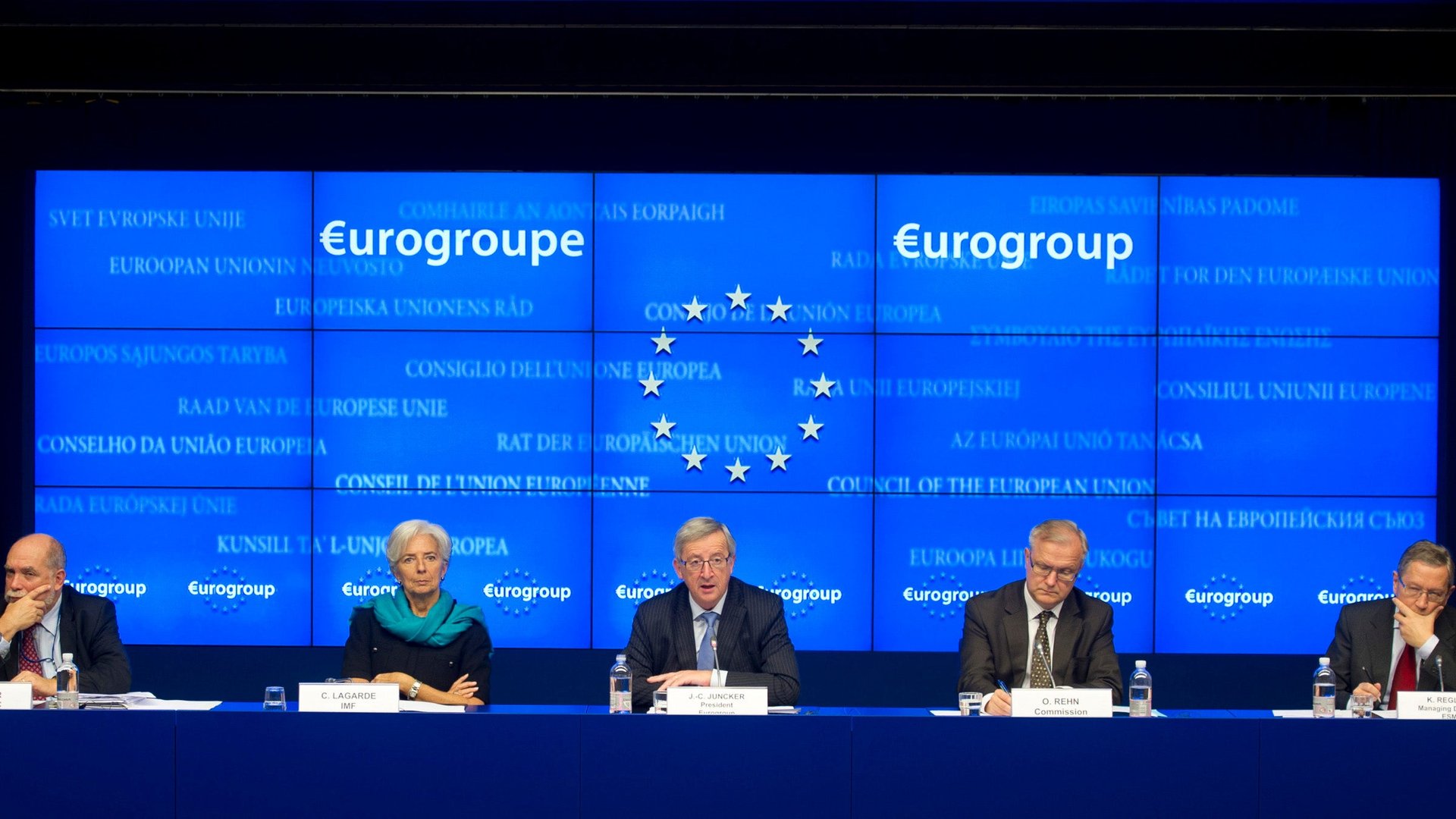When the time comes—and it will—to cancel Greek debt, do it the Paris Club way
In this week’s scrap between the IMF and European leaders over the Greek crisis—the technocrats wanted the Europeans to take a loss on Greek debt, while the Europeans didn’t want to forgive any debt but to give the Greeks more time to pay it off—the deal that emerged was a compromise. While debt “haircuts” were nowhere to be found, lower interest rates, disgorged profits and a debt buy-back program at least alleviated some pressure on the country.


In this week’s scrap between the IMF and European leaders over the Greek crisis—the technocrats wanted the Europeans to take a loss on Greek debt, while the Europeans didn’t want to forgive any debt but to give the Greeks more time to pay it off—the deal that emerged was a compromise. While debt “haircuts” were nowhere to be found, lower interest rates, disgorged profits and a debt buy-back program at least alleviated some pressure on the country.
But it’s unlikely to be a permanent solution, writes Robert Kahn, an economist and former IMF official, who detailed the terms of the deal on his blog. Though Greece has cut spending and raised taxes by implementing the austerity policies its creditors have demanded, this has also spurred a deep recession that has devastated the country’s economy. Unless and until growth restarts, no amount of fiscal consolidation will drive down Greece’s ratio of debt to GDP.
One of the more controversial aspects of the deal is a bond buyback plan that would allow Greece to purchase some €10 billion of its own bonds. The problem with that? It probably won’t do too much [pdf] for Greece. ”Markets always love it when debt is going to be bought back, [but] if you have a deeply insolvent country, buybacks bid up the debt so it doesn’t really give a lot of relief to the country,” Kahn told Quartz.
However, Kahn says he sees signs that the governments holding the bulk of Greece’s debt will one day accept the need to forgive some of it. ”The markets also may believe that it’s a signal that we’re going to get significant debt relief down the road,” Kahn says. “The market reaction was not that [the program] was going to hold together, but that the dam is starting to break.”
While the losses taken by the European governments—lowered interest rates worth €2 billion, fee cuts worth €600 million, and reimbursement of €7 billion in profits on certain loans—aren’t substantial, they are the first sign that economic pressure for relief is starting to overcome political obstacles. Even sovereign-debt restructuring expert Lee Buchheit didn’t anticipate this kind of “reprofiling” before Germany’s 2013 elections. The IMF’s willingness to stand its ground seems to have shifted the situation.
If Greece is to remain in the European union, it will almost certainly need real debt relief at some point. And countries like Spain and Portugal will not be far behind in asking for a break. The good news, Kahn notes, is that there is already a framework for a comprehensive settlement along these lines: The Paris Club, a group of creditors who meet to address debt repayment problems in emerging economies. The principles behind the group—advance rules about restructuring, conditioned on IMF programs, and creating seniority for new lending so that countries can return to public markets—would suit the current European situation well.
But an effort like that will really have to wait until Germany’s 2013 elections.